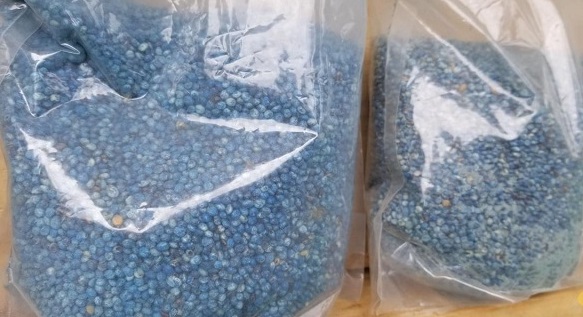Agriculture
NARO Unveils Aflasafe, A Breakthrough in Combatting Aflatoxins in Cereals
Ugandan scientists have introduced Aflasafe, a revolutionary bio-control technology designed to significantly reduce aflatoxin contamination in crucial cereal crops. This innovation, a result of collaboration between the National Agricultural Research Organisation (NARO) and the International Institute of Tropical Agriculture (IITA), promises to transform food safety and enhance market access for Ugandan farmers.
Aflatoxins, a potent and invisible threat, have long plagued cereal farmers, leading to widespread rejection of their produce in both local and East African regional markets. Beyond economic losses, these naturally occurring toxins pose a severe public health risk, with documented links to cancerous cells in humans and animals.
NARO’s Winnie Nanteza underscored the critical importance of Aflasafe. She explained that the technology was specifically designed to eliminate these disease-causing organisms from crops, addressing the root of the problem. Nanteza highlighted that many farmers, unaware of the full danger, convert aflatoxin-infested cereals into animal feeds, inadvertently transferring the toxins to meat and other animal products, thus perpetuating health risks within the human food chain.
The new Aflasafe technology is applied to crops in the garden just three weeks after planting, effectively stopping the development of these harmful organisms before they can take hold. Nanteza emphasised that Aflasafe is developed from organic materials and is robust enough to combat existing harmful chemicals in the soil.
Rigorous research conducted across Uganda has demonstrated Aflasafe’s remarkable efficacy, with rates of over 90% in reducing aflatoxin contamination. This makes it a highly viable and promising solution for farmers cultivating cereals such as maize and sorghum, which are particularly susceptible to contamination.
While Aflasafe represents a significant leap forward, Nanteza clarified that it is intended to complement, rather than replace, traditional aflatoxin prevention measures. These crucial practices include proper post-harvest handling, such as drying cereals on tarpaulins and storing them in clean silos or sacks.
The Ministry of Agriculture has reviewed Aflasafe, with experts commending its effectiveness after passing stringent local and international tests. Paul Mwambu, Commissioner for Plant Health in the Ministry of Agriculture, hailed Aflasafe as a “groundbreaking innovation” that will revolutionise the narrative surrounding farmers’ yields.
Mwambu confirmed that the product is ready for farmer adoption, pending final certification from the National Drug Authority (NDA) for official rollout across the country. He stressed that the production of aflatoxin-free grains offers not only substantial financial gains for farmers but also ensures food and nutrition safety, which is paramount for fostering a healthy future generation.
NARO teams are actively engaged in sensitizing farmers about Aflasafe’s benefits, with the aim of widespread adoption by the first planting season of next year. Following these awareness campaigns, the product will be made readily available in farm shops nationwide, addressing the high demand already expressed by farmers.
Comments



























